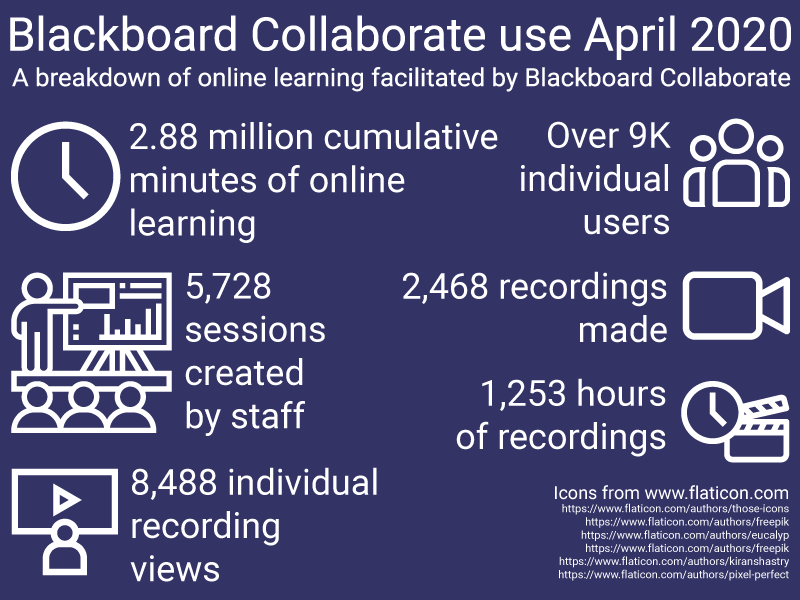As the teaching term starts in its new online form, we know that your students are going to be finding their feet with the new tools and ways of learning. To help you help them get comfortable in their new environment, we’ve been producing a range of advice, screen-casts, and ‘how to’ guides.
Where can I find these guides, and how should I use them?
The guides are available from the new section of our website, called ‘Guides aimed at students’. Although they are all open for anyone to explore, they are best used when they are most relevant. We don’t want to overload students with lots of information that they might not need. Instead, we recommend that you choose which guides are relevant to what your students are doing, and attach them to any initial instructions. For example, if you’re setting up you first Collaborate session, you could send your students the ‘How to: Collaborate quick guide’ so they can make sure they’re set up before you start. There are some guides which are more general, for example on how learning and teaching can work in an online space, and what ‘engaged’ might look like virtually.
You could think about adding these guides to your course space somewhere students can refer to them, or sending them in an announcement. It’s up to you how much you want to use these resources, but we hope they take some of the pressure out of helping your students navigate the new ways of learning online.
Where else should I send my students if they ask for more help?
The Study Skills tab in Blackboard has new guidance on studying from home, including learning online. Guidance on open book assessment is also coming to the Study Skills tab very soon. We’ve also added a lot of new help to the ‘Support’ button in Blackboard. They can find this as a small blue tab with a question mark from the side of their screen. If they open this, they will find a range of specific guidance and links to help pages.
Can they practice with these tools?
Yes! We have also created a space for students to have a look around Blackboard, if they are very new to it, and explore a few of the tools they might encounter. To access the space, they need to find the ‘Student Practice Space’ organisation in Blackboard, or follow this link to the practice space, and then self enrol. To do this, they choose ‘click here to self enrol’, then select the small ‘enrol’ button, next to the green cross in the left hand menu bar, then ‘submit’.
What if I can’t find what my students need?
We will continue to create guidance, but if you find something your students would need that we haven’t covered let us via digital-education@bristol.ac.uk and we’ll do our best to get something ready as soon as possible.
Quick links:


